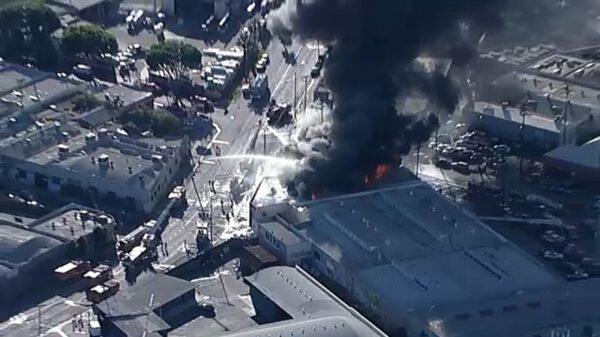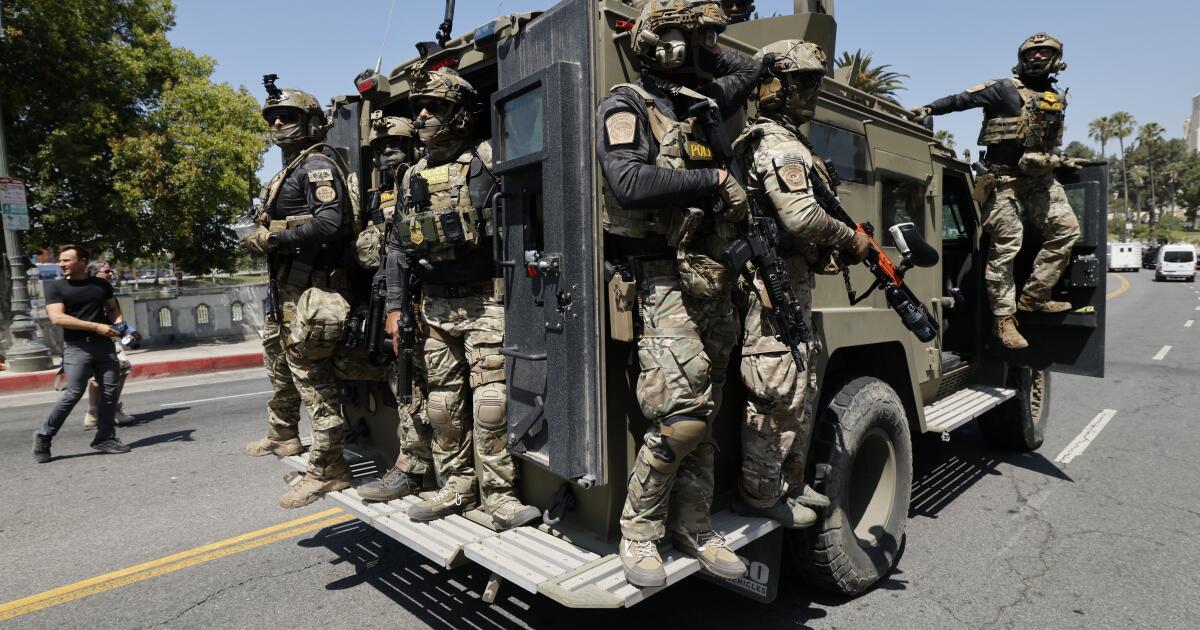Federal immigration agents made a striking appearance near MacArthur Park in Los Angeles’ Westlake neighborhood on Monday morning, marking a dramatic shift in national priorities. This development comes as President Trump’s recent budget and policy decisions place a heightened focus on immigration enforcement while slashing funding for medical and scientific research.
The presence of federal agents, equipped with armored vehicles and on horseback, was met with concern and criticism from local officials and residents. Mayor Karen Bass expressed outrage at a news conference, stating, “Frankly, it is outrageous and un-American that we have federal armed vehicles in our parks when nothing is going on in our parks.” The operation, which saw children playing in the park being moved to safer areas, has raised questions about the necessity and impact of such a show of force.
Shifting National Priorities
The deployment of federal agents in MacArthur Park is part of a broader strategy outlined in President Trump’s budget and policy bill, which prioritizes immigration enforcement over other critical areas. Billions of dollars have been allocated to increase the number of Border Patrol and ICE agents, while funding for medical research and climate-related initiatives faces significant cuts.
Critics argue that this shift in priorities overlooks more pressing threats to public health and safety. “You would think — based on the priorities in President Trump’s budget — that immigration is the greatest threat to our health and security,” commented Steve Lopez, a seasoned columnist for the Los Angeles Times. “It’s not.”
Local Impact and Reactions
MacArthur Park, known for its sizable undocumented immigrant population and challenges such as homelessness and drug-related issues, became the focal point of this federal operation. City Council President Marqueece Harris-Dawson likened the event to a “staging for a TikTok video,” questioning its effectiveness in addressing the park’s underlying problems.
Local officials have long struggled to manage the complex issues facing the Westlake neighborhood. The influx of federal agents, rather than providing support, has been perceived as an escalation that could exacerbate tensions. “If the federal government wanted to help, L.A. could use more support for housing, drug interdiction, and treatment,” Lopez noted.
Broader Implications
The focus on immigration enforcement comes at a cost to other areas critical to national well-being. The Trump administration’s budget includes an $18-billion cut to the National Institutes of Health, threatening to drive top researchers out of the country. Cuts to the National Weather Service and the National Oceanic and Atmospheric Administration further undermine efforts to address increasingly frequent and severe weather events.
“Meteorologists say extreme weather events like the rainstorms that led to a river surge and killed dozens of children and adults in Texas’ Hill Country over the holiday weekend are going to become more common.”
Such cuts have raised alarm among experts who warn of the long-term consequences. The potential for a “catastrophic brain drain” looms, as leading researchers in medicine and science seek opportunities elsewhere.
Looking Ahead
The events in MacArthur Park highlight a clash between federal priorities and local needs, leaving communities to grapple with the fallout. As the week unfolds, uncertainty lingers over which neighborhood might next experience a similar federal presence.
Meanwhile, the broader implications of the administration’s budget decisions continue to unfold, with potential impacts on public health, scientific advancement, and climate resilience. As the nation navigates these challenges, the debate over resource allocation and national priorities remains as pressing as ever.





































































